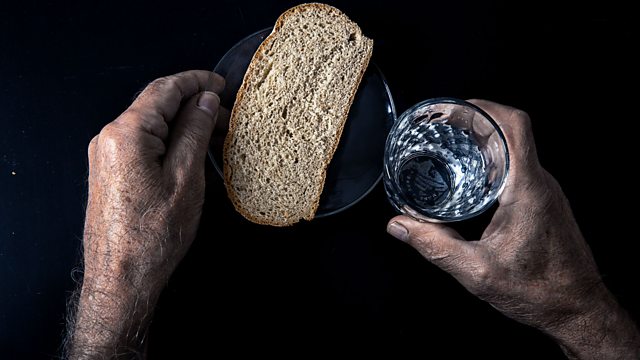Ongoing health effects of a Nazi famine
The Dutch Hunger Winter offers scientists a rare chance to study how undernutrition at a key stage of development affects the health not just of a baby, but also that baby’s children and grandchildren.
Back in 1944, towards the end of WW2, the northern part of the Netherlands was still occupied by Germany. The Nazis blocked all food imports by rail and as winter set in, the shelves started to empty. 4.5 million Dutch people started to starve. Among them was Rita Dogterom. Now aged 80 years old, she shares her memories of living through the famine as a seven year old girl.
(Image: Hands of old man with water and bread. Credit: Getty Images)
Duration:
This clip is from
More clips from CrowdScience
-
![]()
How do birds survive so high up?
Duration: 02:13
-
![]()
The nose knows a good beer
Duration: 02:36
-
![]()
What if the Moon didn’t exist?
Duration: 02:24
-
![]()
A meeting with the ‘chilli queen’
Duration: 02:19






